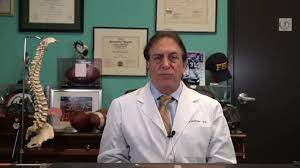Aneurysms are a silent but potentially life-threatening medical condition that demands understanding and awareness. Dr Bruce Grossinger Philadelphia PA provides insights into crucial aspects of aneurysms to help individuals comprehend this condition and take the necessary precautions.
Assessing Your Risk
To understand aneurysms, it’s essential to recognize the factors that can contribute to your risk:
1. Family History: If you have a family history of aneurysms, your own risk may be elevated. Genetic predispositions can play a significant role.
2. Lifestyle Factors: Certain habits can increase your vulnerability to aneurysms. Smoking, excessive alcohol consumption, and illegal drug use are examples of lifestyle choices that can pose risks.
3. Health Conditions: Conditions such as obesity and high blood pressure (hypertension) can also elevate your risk. Maintaining overall health and addressing these conditions is crucial in managing aneurysm risk.
Early Detection Matters
Aneurysms themselves may not always be immediately life-threatening. The real danger lies in the potential rupture of the aneurysm, which can lead to serious consequences like stroke or even death. Recognizing symptoms and seeking prompt medical attention is crucial.
If you experience symptoms like dizziness, weakness on one side of your body, or severe headaches, it’s imperative to consult a medical professional. Dr Bruce Grossinger Philadelphia PA advises that timely intervention can prevent the rupture of an aneurysm and mitigate its associated risks.
Treatment and Prevention
The approach to treating aneurysms varies depending on factors such as size, location, and the risk of rupture:
1. Monitoring: For small aneurysms that pose a low risk of rupture and are symptom-free, medical professionals may recommend regular monitoring through imaging tests. This approach helps track any changes in the aneurysm’s status.
2. Surgery: In cases of unruptured aneurysms that could potentially lead to severe bleeding, surgery might be recommended. Surgical intervention can prevent rupture and its subsequent complications, potentially saving lives.
3. Medications: Following surgery, certain medications, such as beta-blockers, might be prescribed to manage blood pressure and reduce stress on weakened blood vessels. This medication can play a crucial role in post-operative care.
4. Lifestyle Adjustments: Dr Dr Bruce Grossinger Philadelphia PA emphasizes the significance of a healthy lifestyle in aneurysm prevention. Quitting smoking, moderating alcohol consumption, maintaining a healthy weight, and managing hypertension can contribute to lowering your risk of developing or exacerbating aneurysms.
Understanding the nuances of aneurysms and their potential risks is paramount for your well-being. By recognizing risk factors, staying vigilant for symptoms, and seeking timely medical attention, you can work towards preventing the rupture of aneurysms and ensuring your long-term health. Remember that early detection and appropriate medical guidance can make all the difference in the management of this condition.


